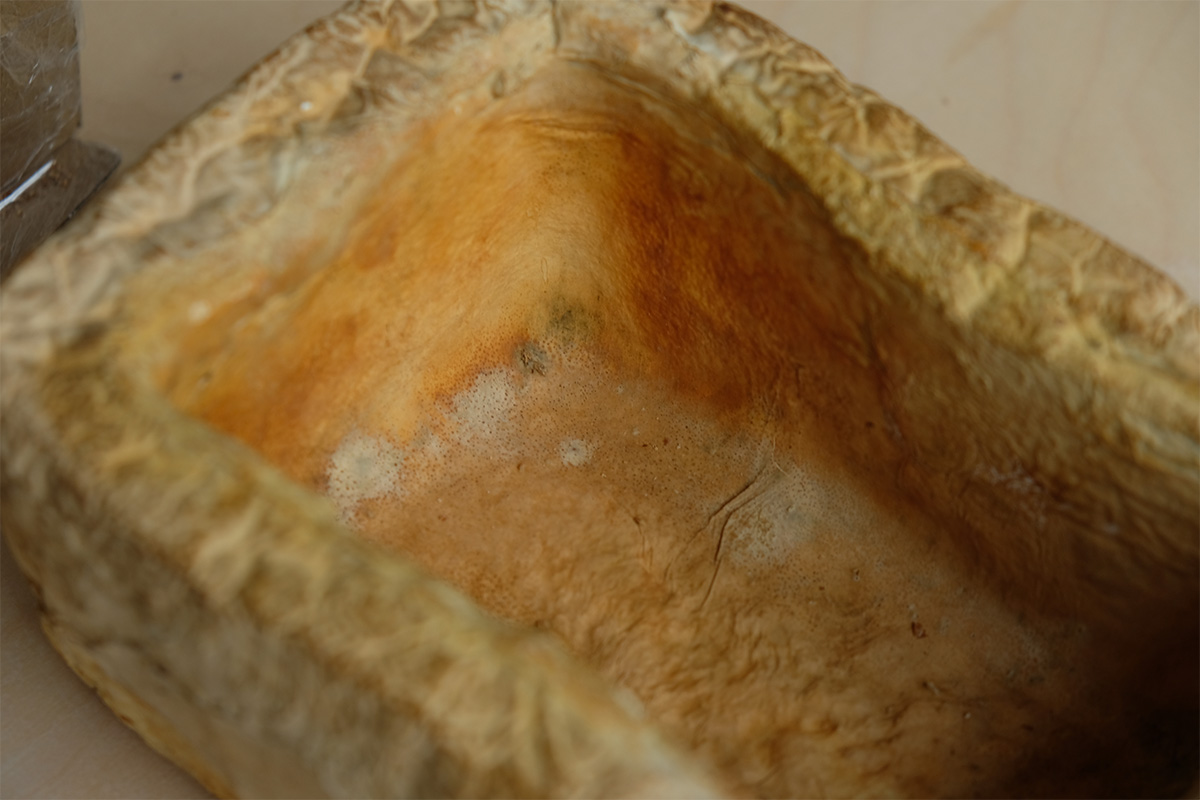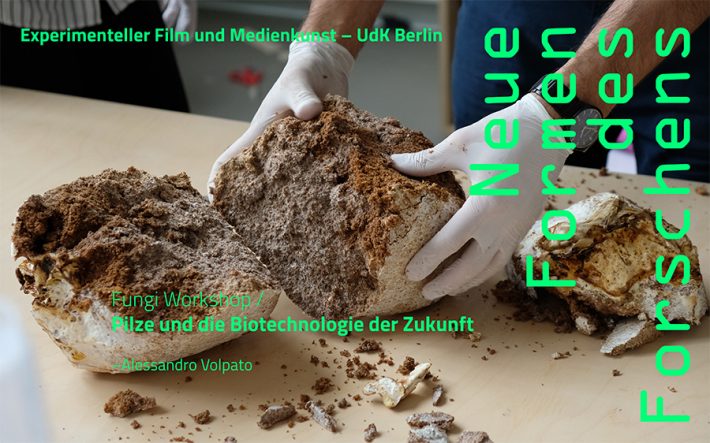Within TOP Lab’s activities, Alessandro Volpato hosted a seminar for UdK students at the Medienhaus, training them to produce vegan materials based on fungal composite materials in a self organised laboratory. Goal of the seminar was to experiment with climate-neutral, artistic strategies and get familiar with futuristic approaches to produce commodities. Mushrooms are cultivated to produce food, construction materials, furniture, textiles, packaging materials, dyeing pigments, chemicals, artworks and are studied as medicinal substance producers. The variety of use cases makes of mycology a field of studies with the potential of proposing extraordinary ideas.
Students witnessed the challenges posed by this transformation of the production chain, and put together concepts in the intersection between the fields of arts and mycology.
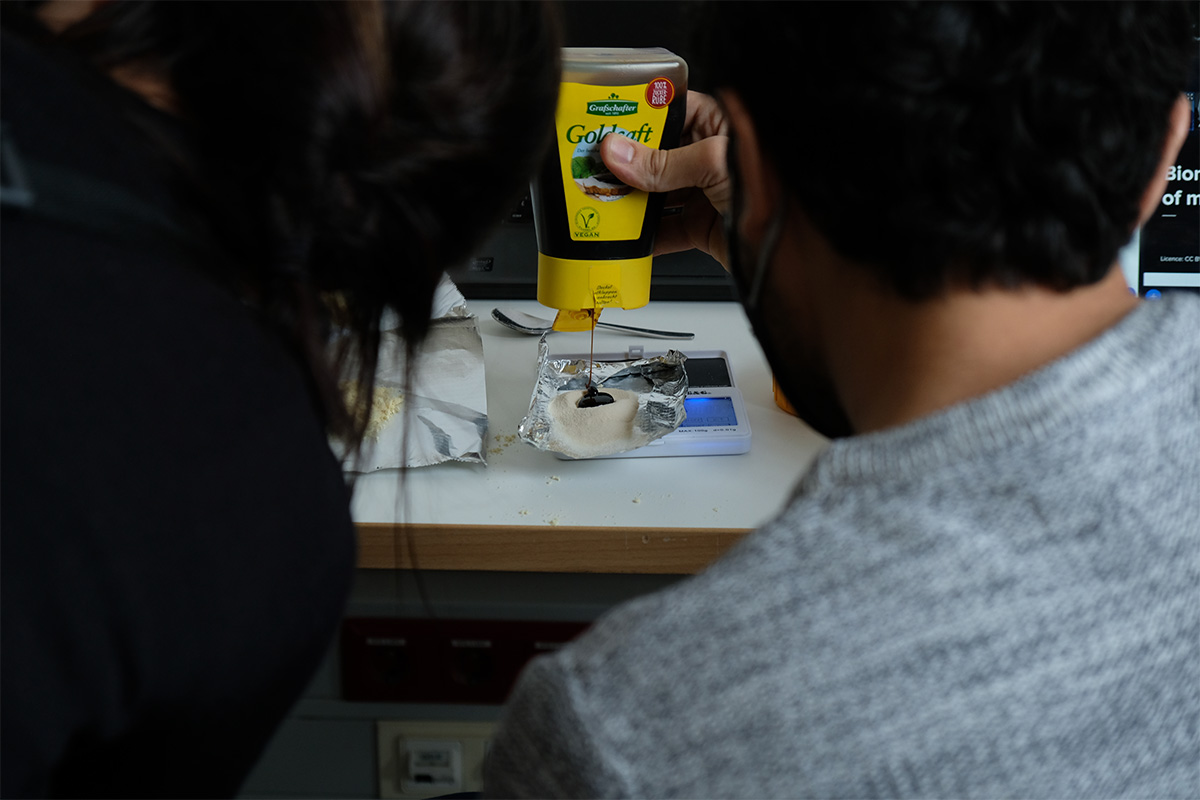
1. Mixing nutrients to grow mushrooms
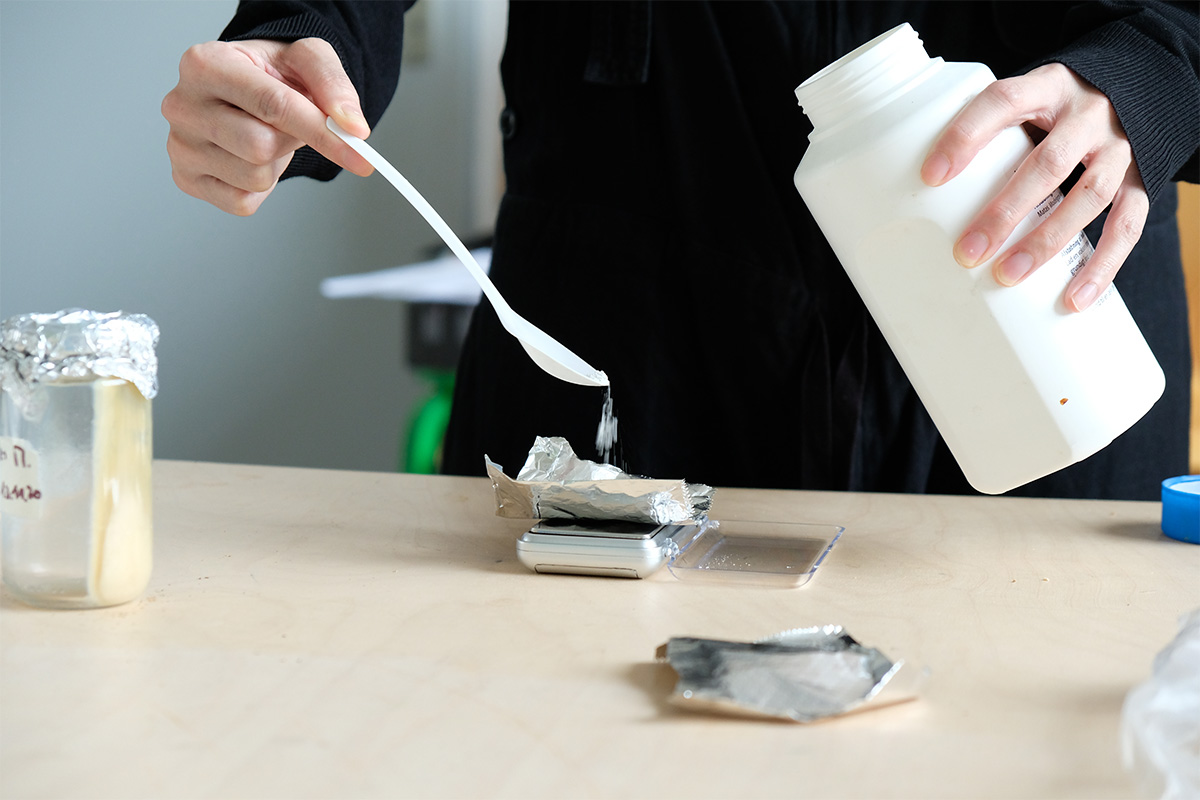
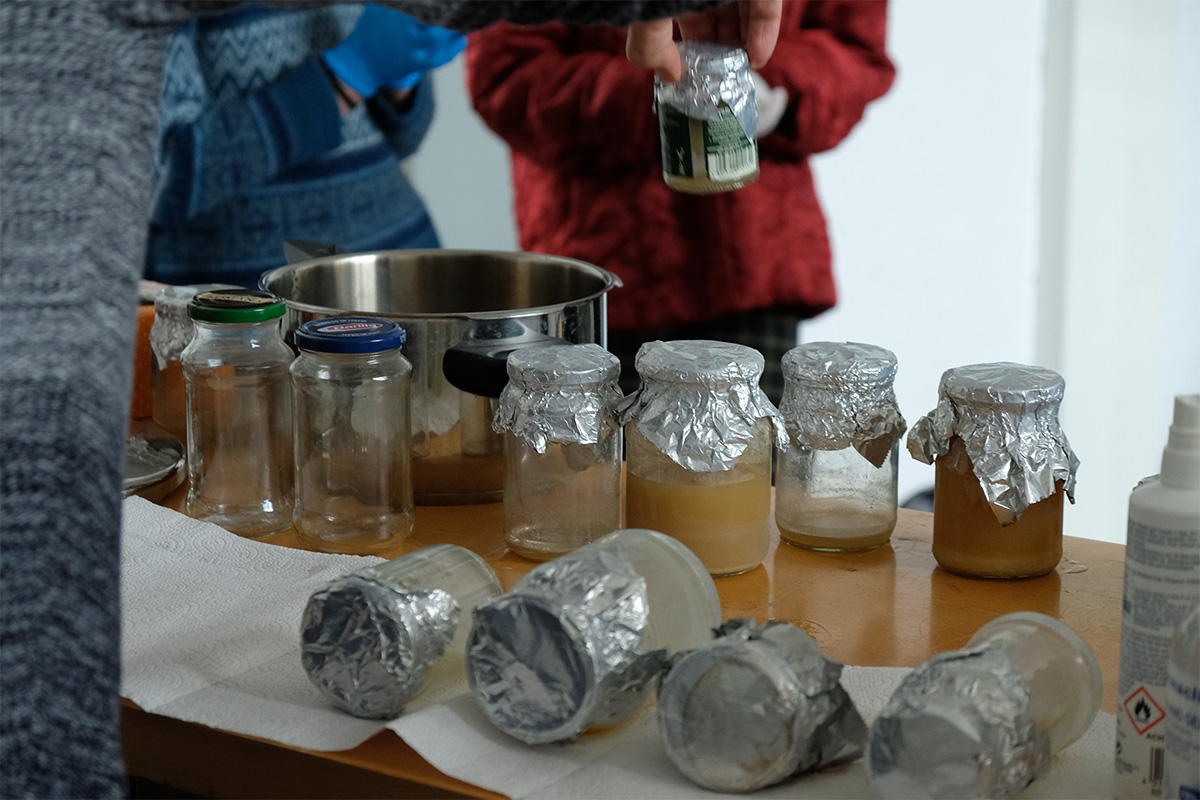
2. Sterilizing the medium
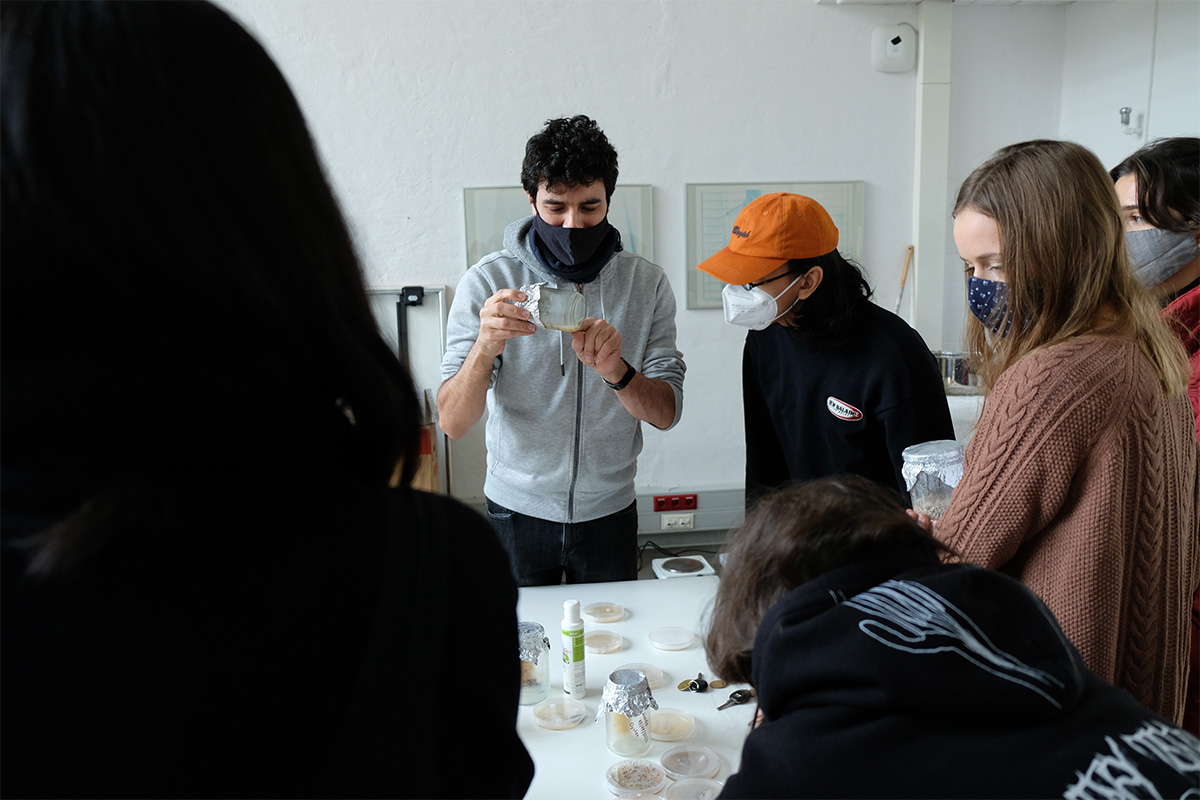
4. Growing mushrooms on Petri dishes.
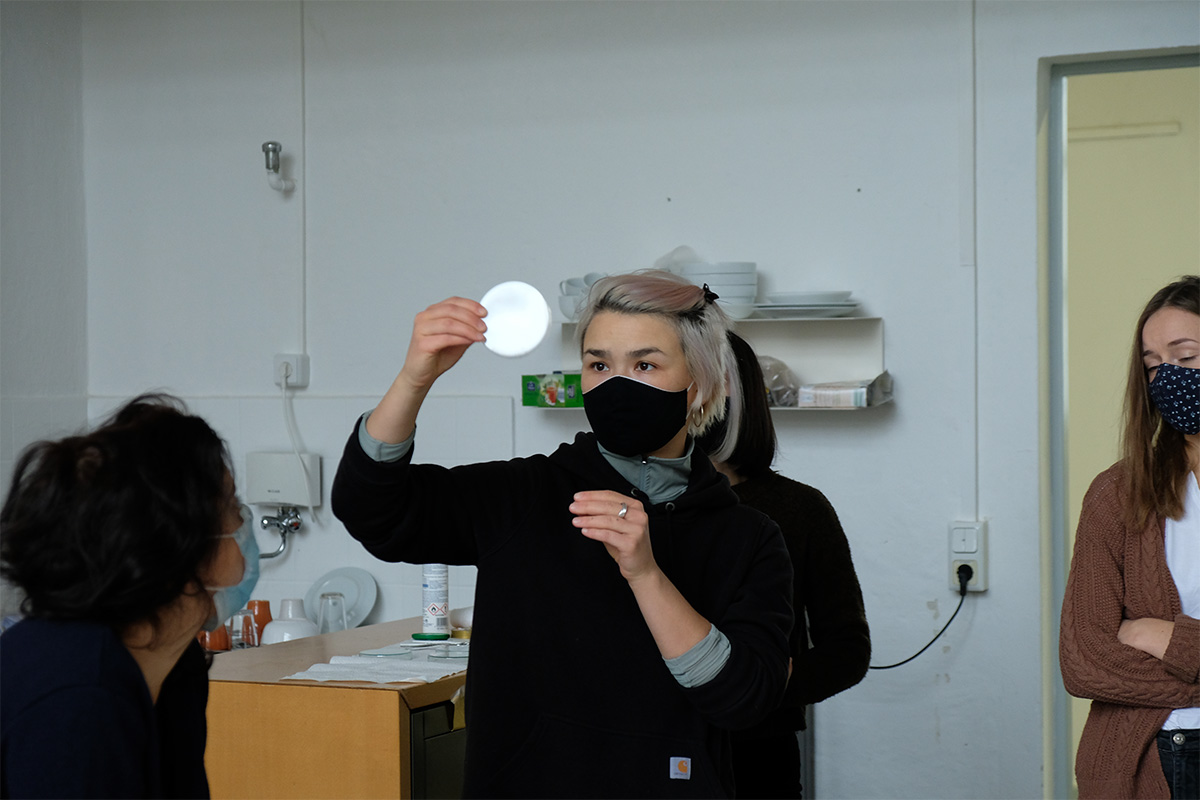
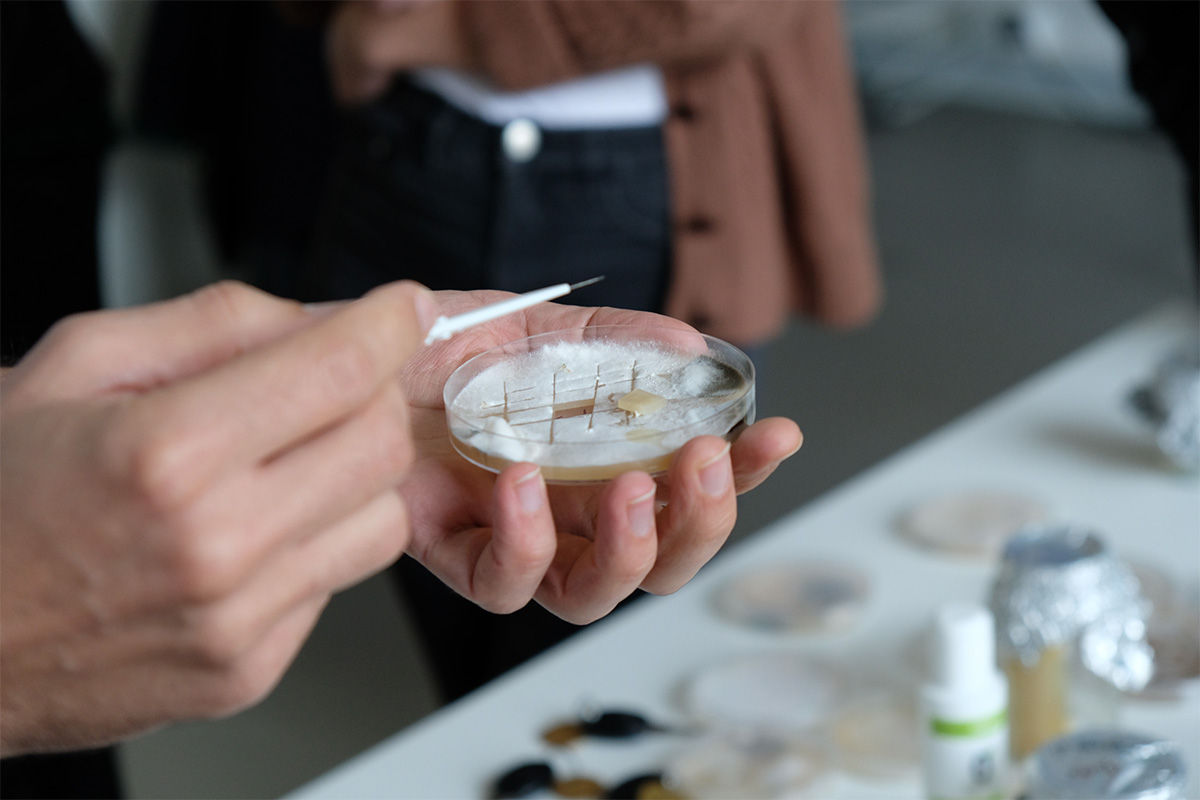
6. Inoculating the grain with mycelium
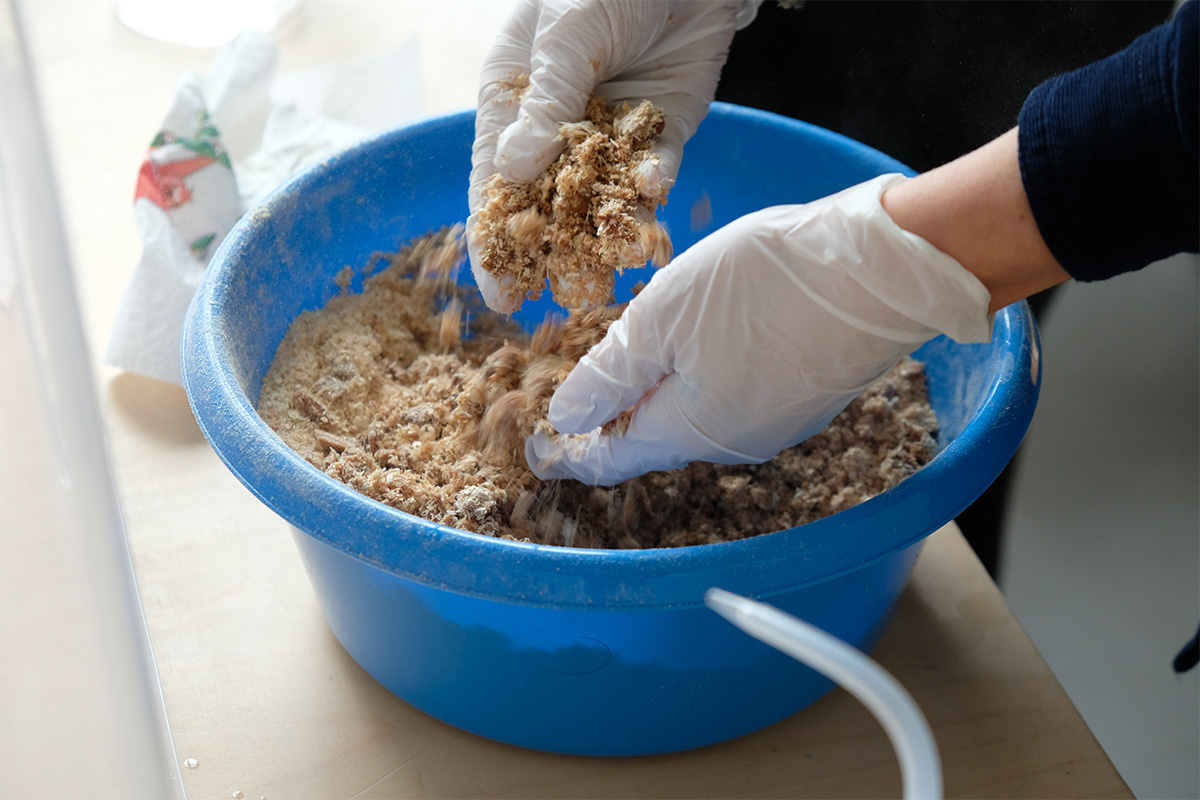
8. Mixing the substrate for composite materials
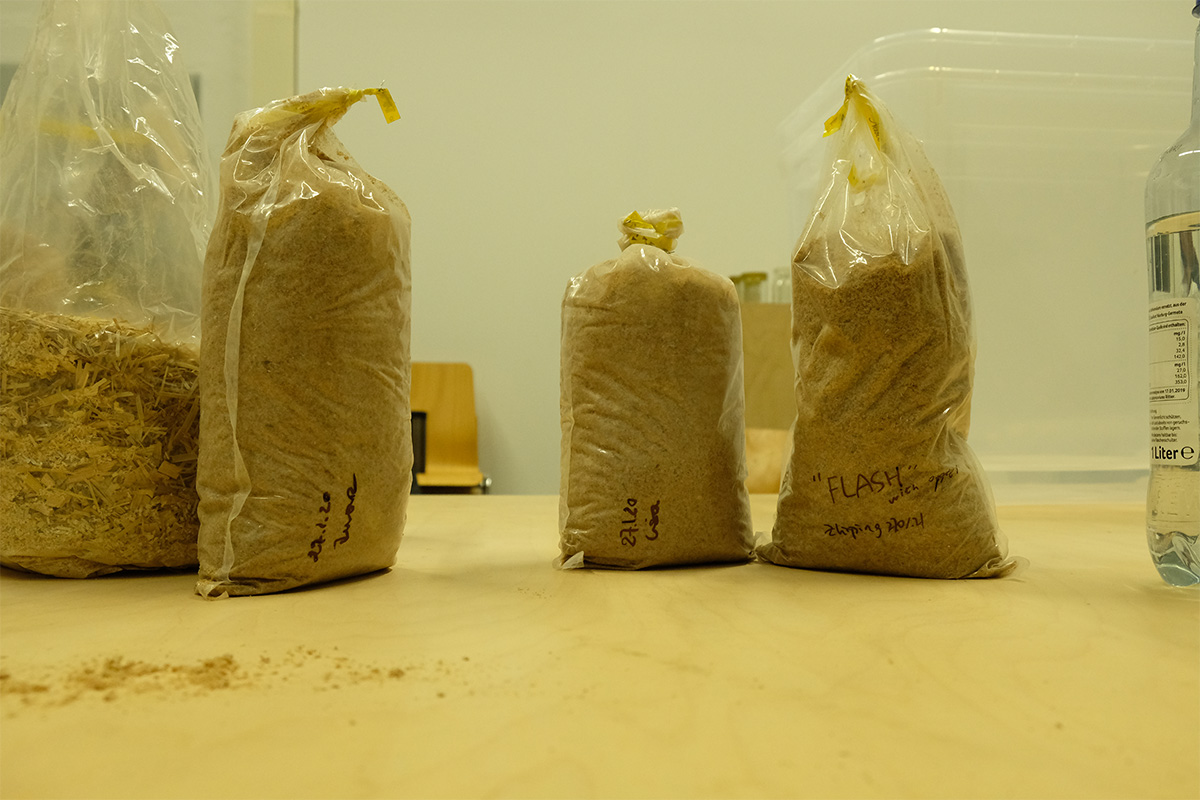
10. Inoculating bags of substrate with living mycelium.
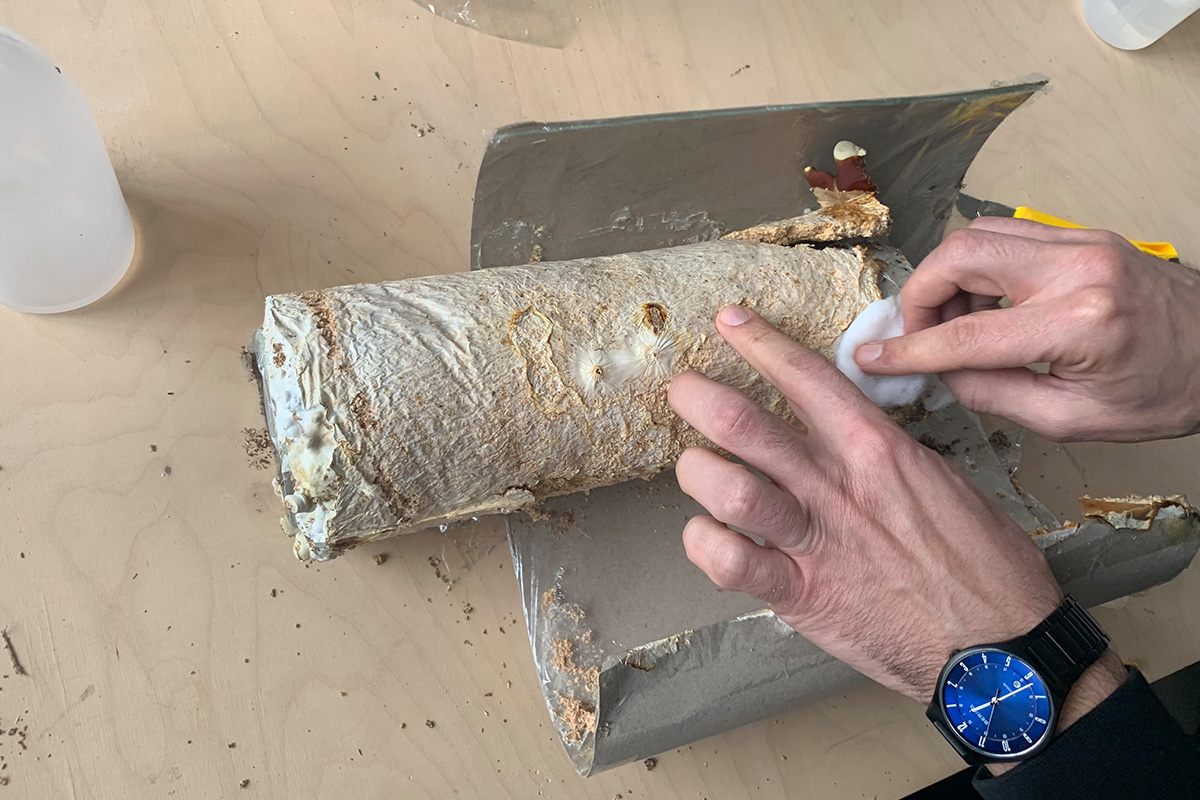
12. Taking the object out of the negative molds
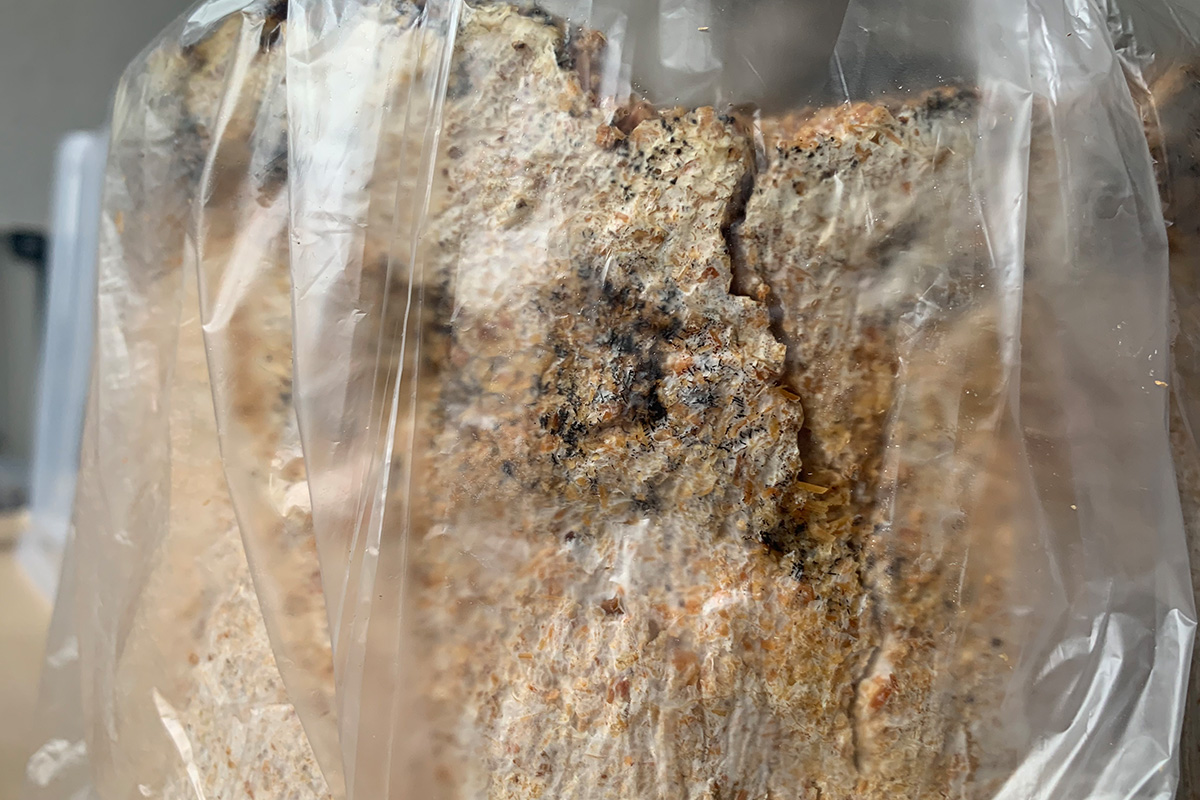
Photos: Juan Pablo Gaviria Bedoya
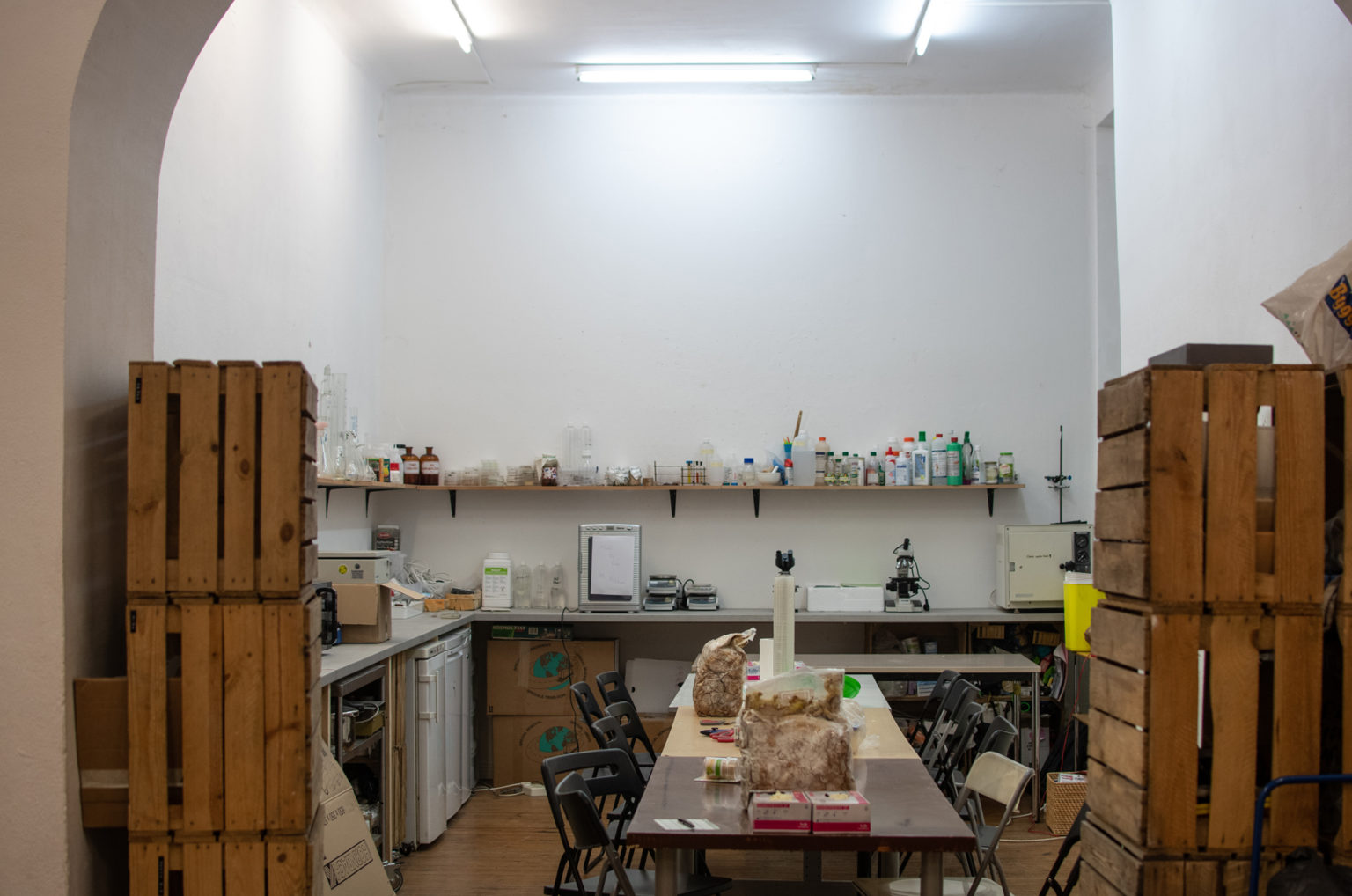
TOP Lab started to host a mushroom cultivation and mycrofabrication courses from Spring 2019 within “Mind the Fungi”, a Citizen Science project of Art Laboratory Berlin artlaboratory-berlin.org and the TU Berlin Institute for Biotechnology (applied molecular microbiology). forschung.tu-berlin.de Goal of the seminar is to involve participants in the research process, by teaching them to cultivate mushrooms and produce fungal materials for practical applications or artistic purposes. Once trained, we encourage participants to keep experimenting.
About TOP e.V.
>top Association for the Promotion of Cultural Practice has been operating in Berlin since June 2002. Its members are artists, researchers and activists, whose activities range from individual research to curating project space to international collaboration. More information: Mind the Fungi at TopLap
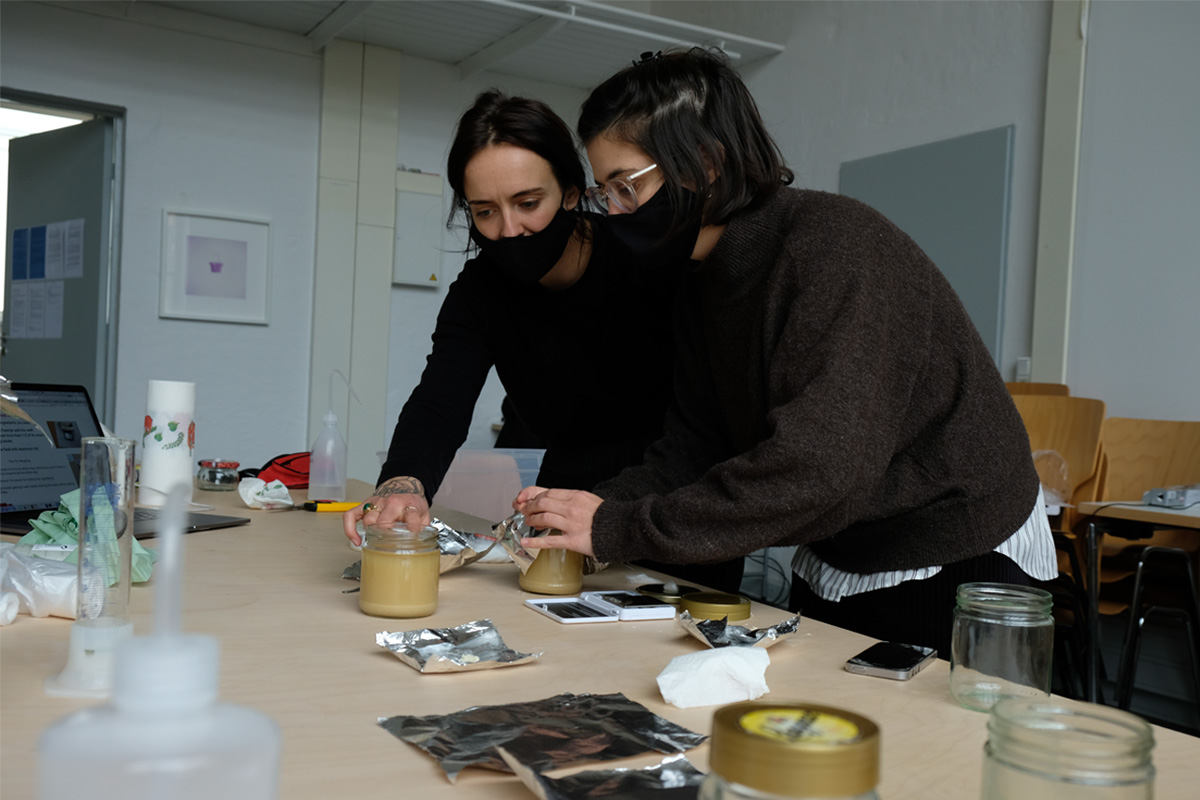
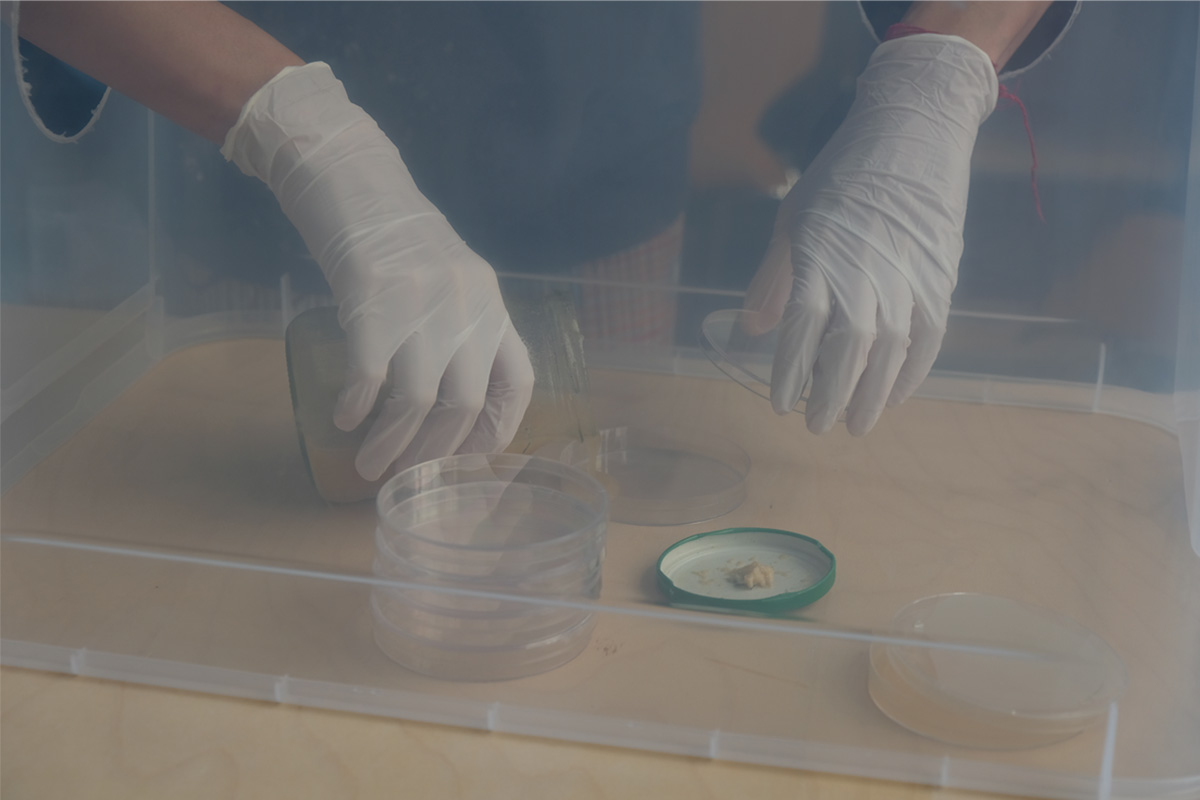
3. Preparing Petri dishes in protected environment
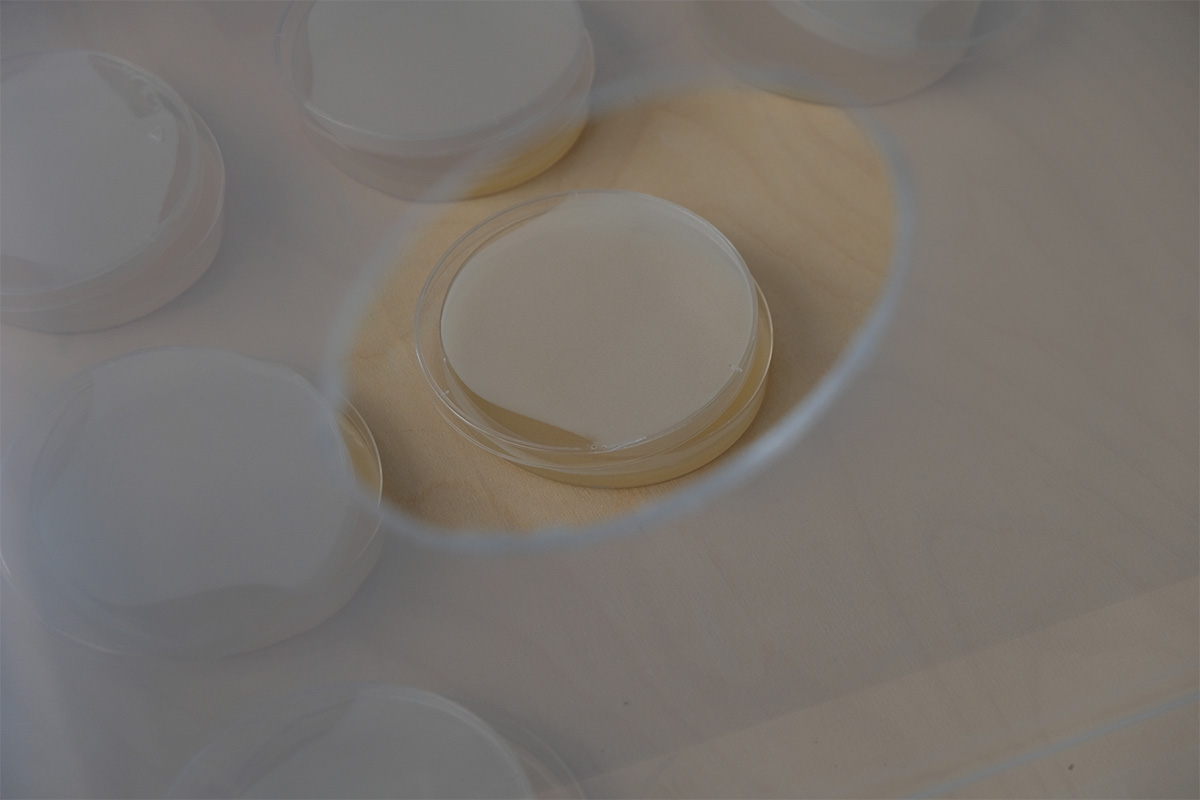
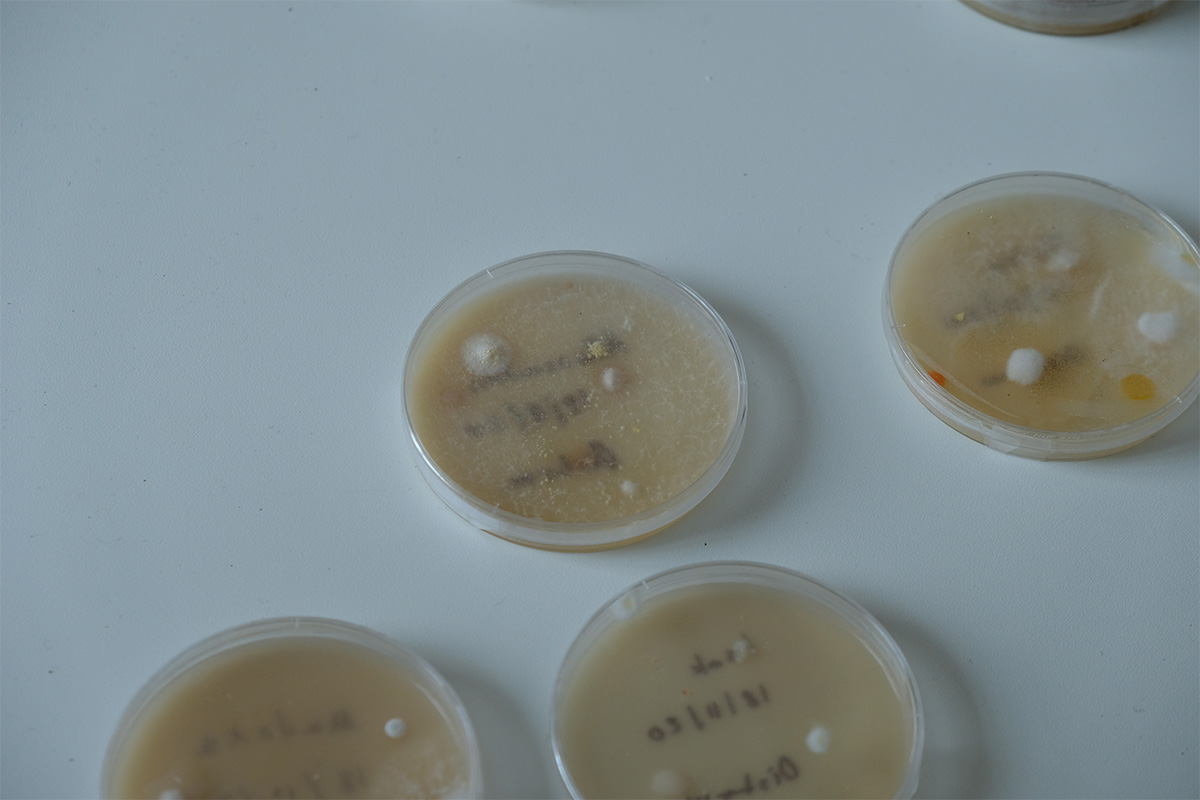
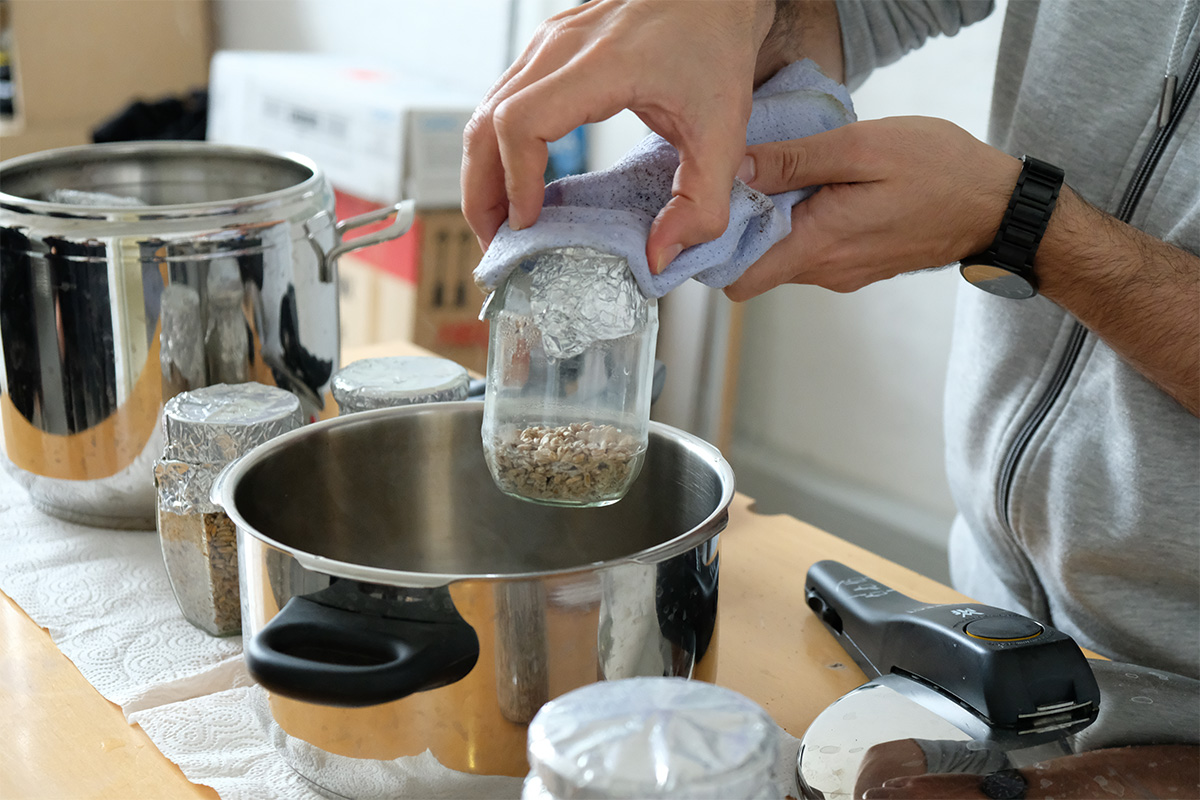
5. Sterilise grain to produce grain spawns
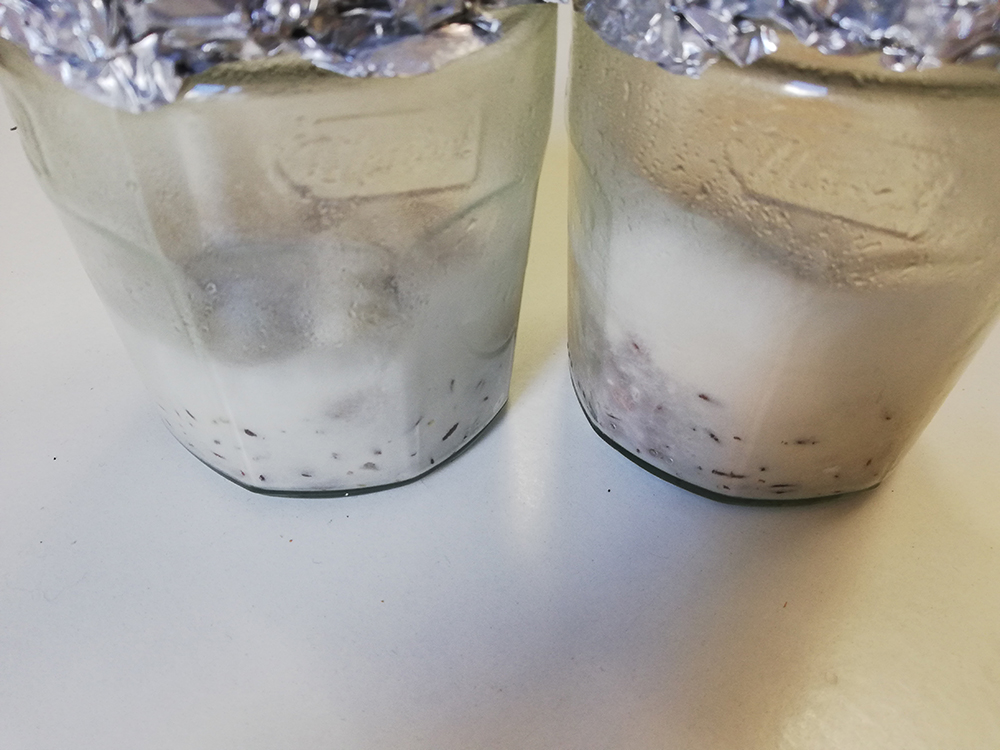
7. Grain spawn ready
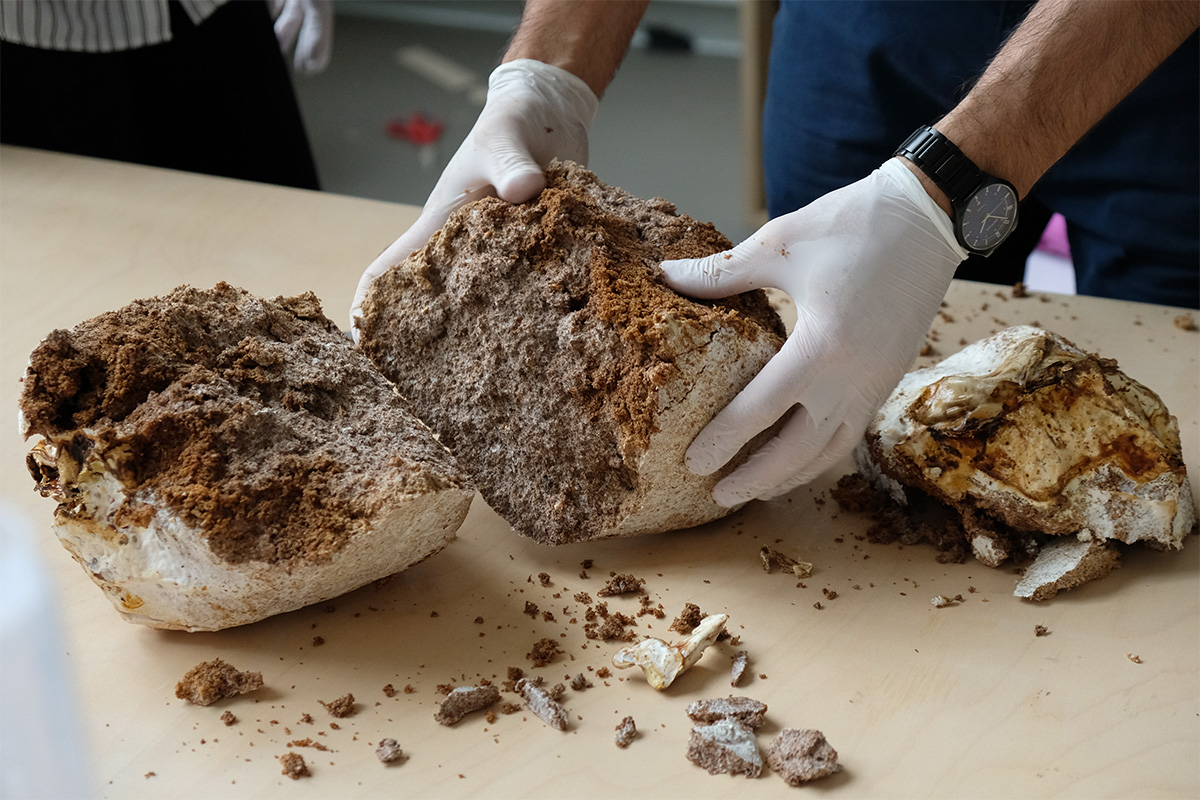
9. Breaking down well grown mushroom material to create objects
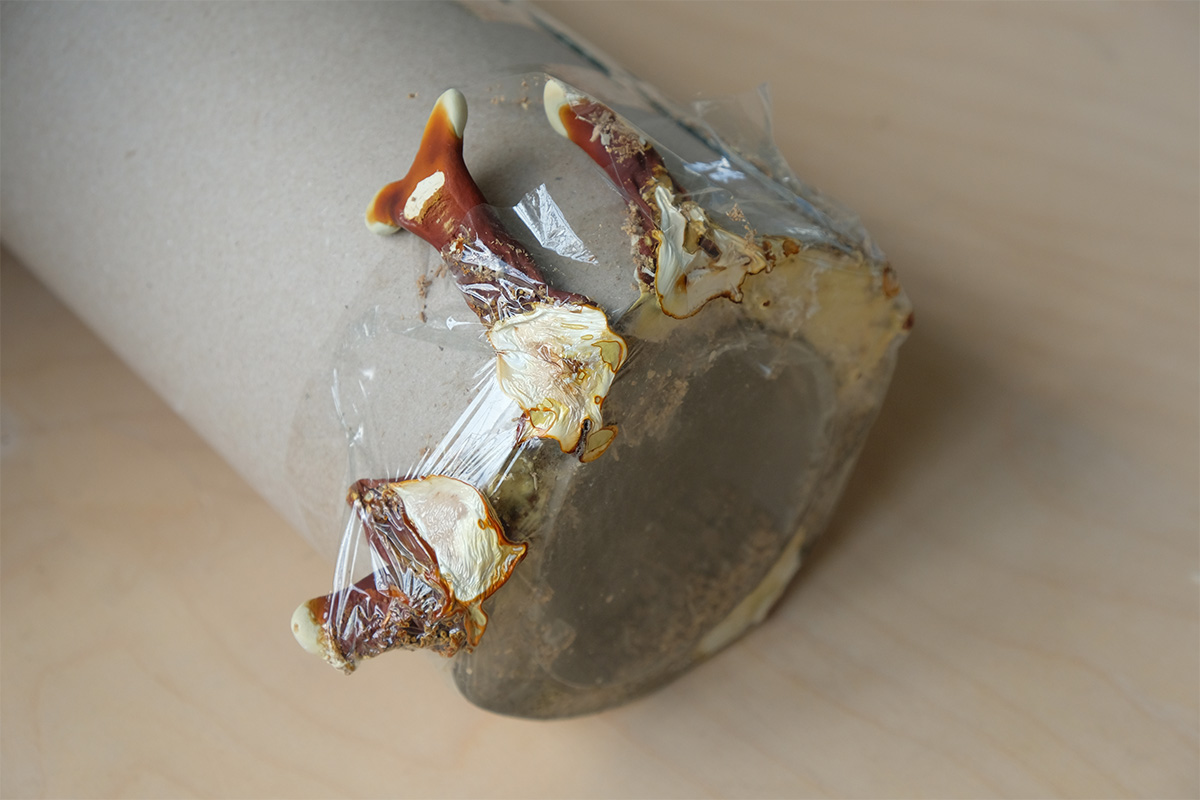
11. Creating negative molds and letting the mushrooms growing in it
